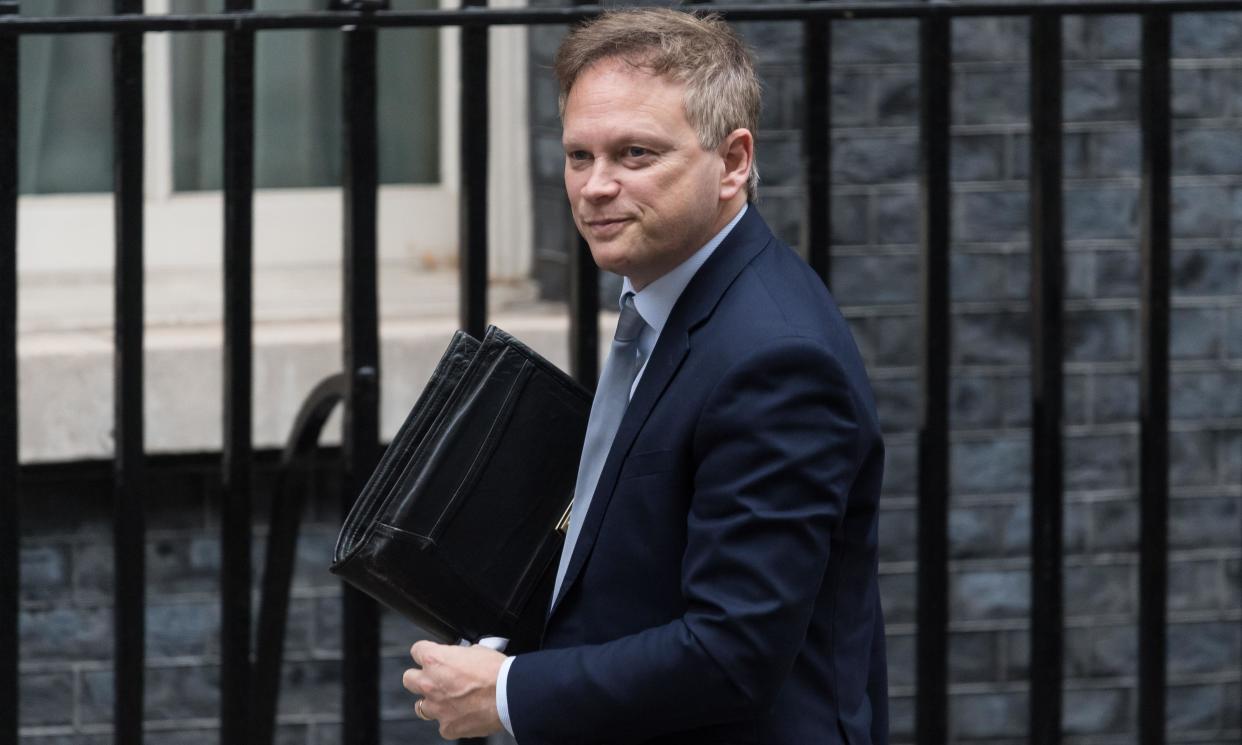‘In the balance’: divided Tories weigh up PM’s position before Sue Gray report

Rival camps attempt to shore up support in crunch hours before senior civil servant delivers findings on alleged No 10 parties
As Boris Johnson prepares to face possibly his most difficult day in politics, Tory MPs said his fate was “hanging in the balance”.
Two tumultuous months could come to a head with the publication of a report by the senior civil servant Sue Gray, whose gathering of evidence and interviewing of key witnesses for her inquiry into Downing Street parties could provide the spark for a leadership challenge.
Arch-critics of the prime minister are hopeful that Gray’s findings will be damaging enough to trigger what they believe will be the final trickle of letters needed to get to 54 and force a no confidence vote.
One said: “No 10 has shifted the goalposts so far now, but it’s clear Johnson misled the house when he assured us no rules were broken in Downing Street. There’s no chance many others will be able to escape that conclusion.”
Another was confident that colleagues would take the choice to “end this nightmare ourselves” and when asking themselves “how much they are willing to put up with”, decide this week that inaction was “not sustainable”.
Related: No 10 parties: police will uncover evidence not in Gray report, say ex-staffers
In a move to head off the rebellion to remove him, Johnson was holed up for three hours in his Commons office on Tuesday afternoon, joined by some of those ministers closest to him, such as the home secretary, Priti Patel.
About 10 backbenchers were summoned to see him throughout the afternoon, including the former Commons leader Andrea Leadsom; the MP for Shipley, Philip Davies; and the “2019ers” Dehenna Davison and Greg Smith. “He wasn’t remorseful or downbeat,” a source noted with surprise.
In a move that is said to have strained tensions with the government whips’ office, a “parallel operation” to prop up the prime minister has been set up by those loyal to him. Sources named the key instigators as the transport secretary, Grant Shapps; the housing minister Christopher Pincher; and Chris Heaton-Harris, a former whip recently given a key Brexit role in the Foreign Office.
Reports over the weekend said they had drawn up their own spreadsheet to keep track of which colleagues were swinging against the prime minister. A senior Tory insider said the group had frequently dipped into the whips’ office this week to feed back their latest intelligence, putting some whips’ noses out of joint.
If Johnson survives the immediate aftermath of the Gray report, one of the plans being considered to salvage his leadership is the “abolition of the Carrie faction” in No 10, according to one ally.
They said an overhaul of the Downing Street operation was key to regaining the confidence of backbenchers, and therefore those said to be aligned with the prime minister’s wife could be axed given the concerns about her influence.
Among those who could end up in the firing line are Simone Finn – a Tory peer who is deputy chief of staff in No 10 – as well as two political advisers in Johnson’s private office, Henry Newman and Henry Cook.
Whether he can avoid a vote of no confidence is “in the balance”, said one Conservative who was yet to submit a letter. Others admitted they were “still considering” whether to do so. “It all rests on what Sue Gray says,” was a familiar refrain among anxious Tories, uncertain about whether they should commit regicide.
Tory insiders pushing for a vote of no confidence admitted they still faced a challenge, describing it as like “herding duplicitous cats”.
Andrew Murrison, a Conservative former minister, said he would read Gray’s “long-awaited” report with a “great deal of interest”.
“A lot of my colleagues will value the objective analysis of the facts,” he said. “I’m going to go into this with an open mind, will read it cover to cover and form a view.”
Regardless of the reported imminent publication of Gray’s findings, several MPs were still confident the investigation opened by the Metropolitan police on Tuesday afternoon would make it politically impossible for Johnson to continue.
“Scotland Yard will be handing out plenty of fines,” one said. “Everyone in Downing Street will be calling their lawyers.”
A second said: “Even if the rozzers only charge Boris £100, it’s still evidence of wrongdoing.”
A third added that even if Johnson escaped direct blame, the concerns about his personality and style of governance would not go away, saying: “A leopard can’t change its spots.”
Even though the Metropolitan police’s inquiry could take significantly longer than Sue Gray’s, some wavering Tories conceded it was a big blow to Johnson’s denial of wrongdoing, because it appeared to suggest the Cabinet Office had uncovered evidence of criminality.
“It’s absolutely nuclear, and the prospect of a binary outcome is much more dangerous than a civil service probe which simply examines the facts,” said one MP who was considering putting in a letter of no confidence. They said that if Johnson did not step down, the Conservatives would get a “panning” in May’s local elections, with a drawn-out police investigation lasting months keeping up the attention on alleged rule-breaking parties.
There were notably more Tory MPs in the Commons chamber who spoke in support of Johnson on Tuesday. Giles Watling called an urgent question on the issue a “vexatious waste of everybody’s time”; Lia Nici insisted constituents were “sick and tired of listening to this constant thread”; and Shailesh Vara encouraged colleagues to focus on “matters that really affect our constituents on a day-to-day basis”.
However, Chris Bryant, a Labour MP and chair of the standards committee, said: “Every time a Tory MP brays about the irrelevance of the PM’s rule-breaking, they write their own P45.”

 Yahoo Movies
Yahoo Movies 
